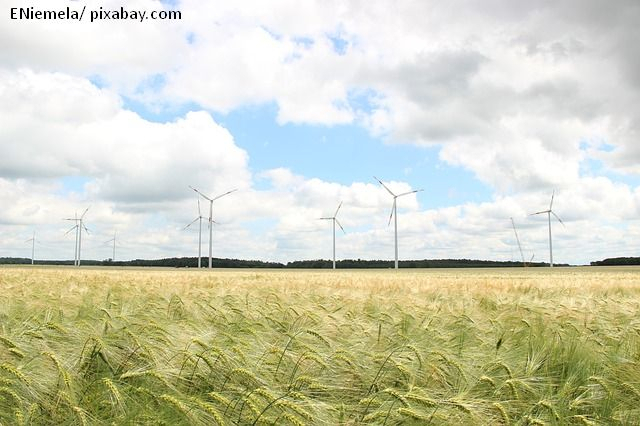More energy from renewable sources
The energy sector is responsible for around three-quarters of the global greenhouse gas emissions.

Corina Cristea, 14.10.2022, 14:00
The energy sector is responsible for around three-quarters of the global greenhouse gas emissions — a powerful reason for which switching to clean forms of energy production and improving energy efficiency should be considered vital. In a report published this week, the UN World Meteorological Organization (WMO) warns that if the world does not move faster towards clean energy sources to slow down the climate crisis, more extreme weather conditions and water stress will put our energy security at risk and could even compromise our renewable energy supply. “Time is not on our side, and our climate is changing before our eyes”, said the WMO chief.
The organization experts show, at the same time, that the energy sector, besides being a major source of emissions that are at the origin of climate change, is also vulnerable to the changes that accompany the warming of the planet. Heat waves and droughts lower the level of water courses, causing problems for hydropower plants and for cooling nuclear power plants, the experts explained.
In turn, storms and other extreme weather phenomena damage infrastructure in many areas. “A transition to renewable energy will help alleviate the growing stress on water supply” — shows the report on the state of climatological services, an annual document which in 2022 focuses on energy — because the amount of water used to generate electricity by solar and wind power is much lower than the amount used for more traditional power plants.” “But current renewable energy pledges by countries fall well short of what is needed to reach the goal of universal access to affordable, reliable, sustainable and modern energy, by 2030” said the WMO experts. To put the world on a net zero trajectory by 2050, the report concludes that renewable energy investments must triple by then.
We have scientific data that show an acceleration of climate change, explained to Radio Romania, Alexandra Bocșe, a State Counselor with the Climate and Sustainability Department of the Presidential Administration, who also referred to the levels of ambition in different countries regarding the abandonment of polluting sources for energy production.
Alexandra Bocșe: “If we look at the negotiations in recent years, we see a higher level of ambition all over the world and a recognition of the fact that the impact of climate change is visible and affects us all. Yes, we can indeed refer to India’s and Chinas reluctance as regards the use of coal for energy and electricity generation. On the other hand, India and China have also faced extreme weather phenomena, which have led to very high losses, losses of human lives. We are acting in the field of climate not only for a reason related to a green idealism. We are also acting for clear-cut economic reasons. Extreme weather phenomena, for instance the floods and landslides in Germany cost 20 billion dollars; Hurricane Ida in the US is estimated to have cost 75 billion dollars. What I mean is that were talking about very large amounts of money that we have to cover if we dont take action. And the more these extreme phenomena intensify, the higher the costs will be.”
Entire regions of the globe will become uninhabitable in the coming decades due to more frequent and intense heatwaves, warn the UN and the International Federation of Red Cross and Red Crescent Societies. Less than a month before COP27, which will take place in November in Egypt, the two bodies are calling for measures to prepare for future heatwaves. They emphasize that there are limits beyond which people exposed to extreme heat and humidity cannot survive and that there are also limits beyond which societies can no longer adapt. The imprints of climate change and human activity are felt everywhere. Such an example is the desertification of land to the point where nothing grows on it.
Statistics show that it already affects more than 100 countries, 13 even from Europe, and a billion people directly bear the consequences of this phenomenon, the first consequence being the food crisis. According to estimates, soil desertification has reduced terrestrial agricultural productivity by 23% worldwide, and in the future, a third of the currently cultivated land is under the threat of desertification. What can we do? How important is the energy transition to the climate transition?
Alexandra Bocșe is back with details: “When we talk about new technologies and investments, we can certainly think of solar electricity panels for energy generation, but we can also think of household appliances that are more energy efficient. We can also think of measures aimed at increasing the energy efficiency of homes through superior insulation systems; we can equally think of cars and means of transport that are sustainable.”
However, all measures must be taken before it is too late, because the consequences of climate change are already being felt in the Arctic region. Researchers have found that, because of these changes and the subsequent retreat of sea ice, a larger area of seawater originally covered by ice was exposed to the atmosphere, which leads to a faster absorption of atmospheric CO2. This causes drastic ocean acidification and the reduction of the oceans ability to act as a buffer to the impact of global warming. (LS)






























